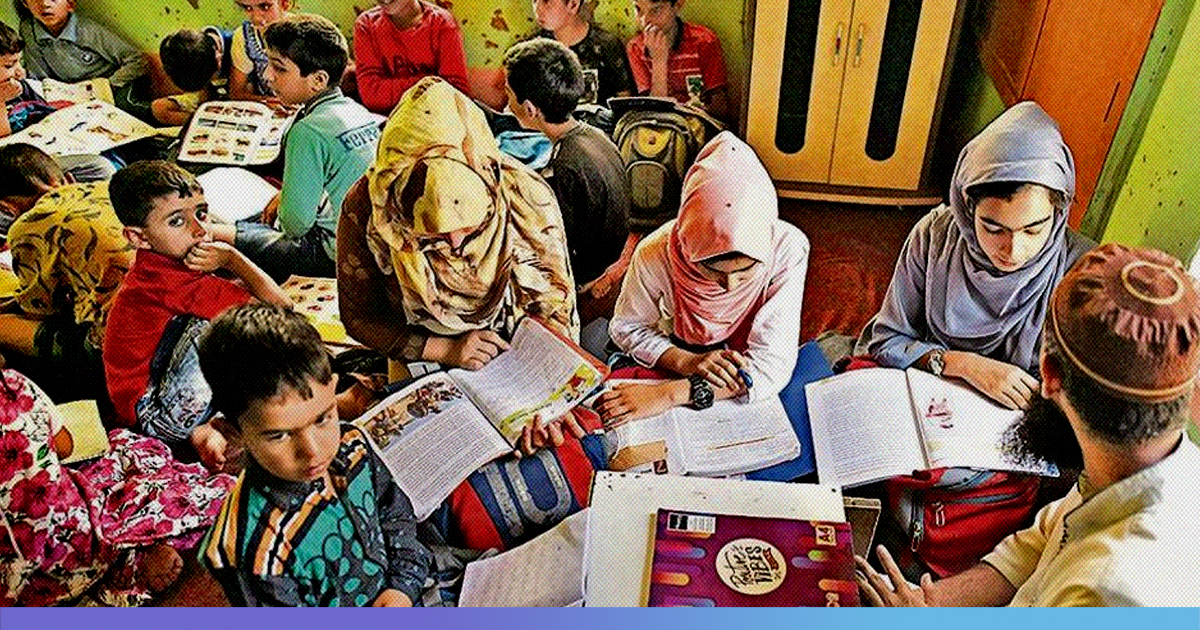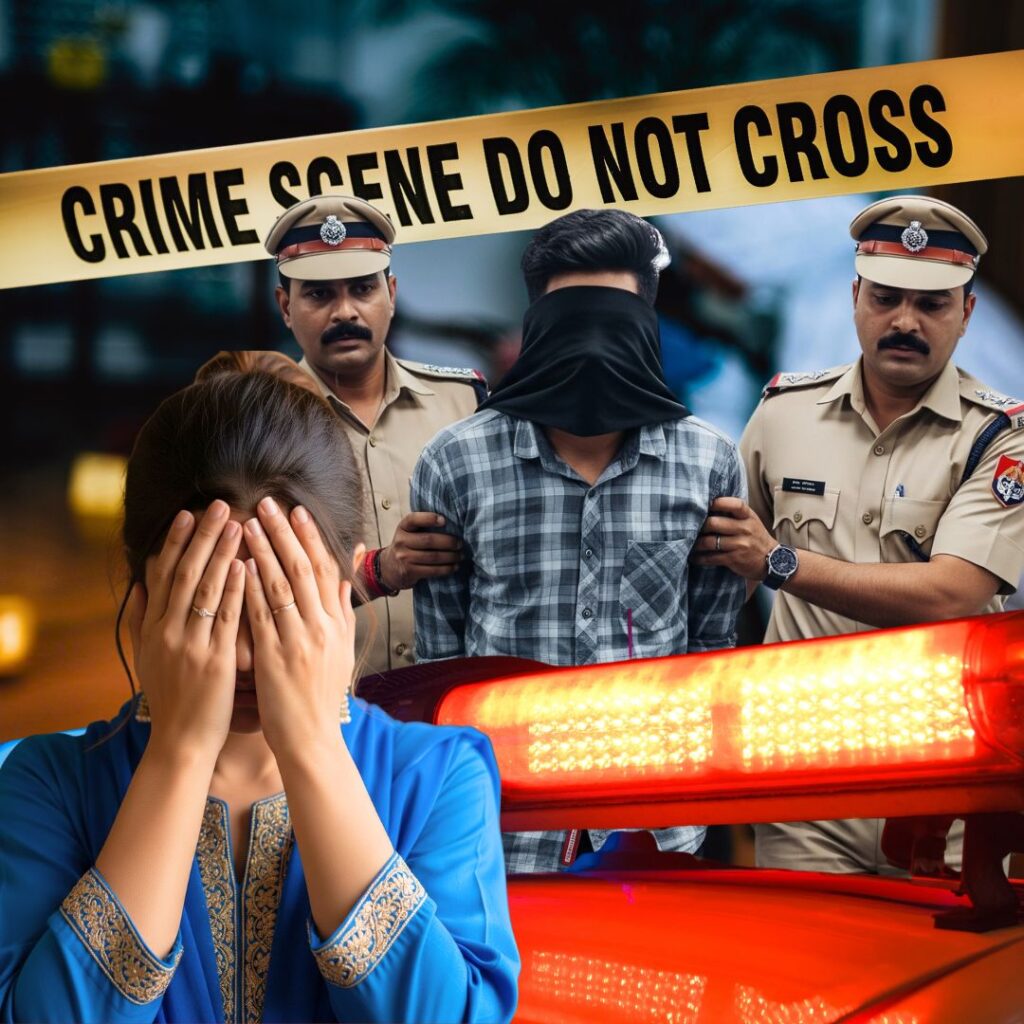The Jammu and Kashmir clampdown completes 53 days today. It has been 53 days without communication and internet in the region. While the condition of businesses, trade, healthcare, and livelihood remains dismal, the future of J&K children and teenagers, stares cluelessly at a blank.
Education is a fundamental right in India. The abrogation of Article 370 was done promising the country that Jammu and Kashmir will see a better tomorrow. However, 50 days since the unexpected revocation, the region’s children can’t envisage the silver lining to this lockdown as they haven’t been given enough clarity on what the impact the reorganisation of the state and the invalidation of the article will have on their academic and professional ambitions.
Speaking to The Logical Indian, students, teachers and eminent residents from J&K divulged the details on the worrisome condition of education back home.
A Teacher From The City
Ismat Javed’s sister teaches in one of Srinagar’s most prestigious schools. Situated in the heart of the city, Tyndale-Biscoe & Mallinson School is renowned in the valley for its roll of charismatic students. Its corridors which used to be filled with lively discussions and laughter, echoes of silence since 5th of August.
On the 19th of August, the government declared that they would be reopening primary schools and reporters encircled some establishments to capture footage of students returning. Unsurprisingly, the only people that could be seen entering campuses were gatekeepers, cleaning staff and a handful of teachers.
“What makes the government think that I’ll send my 7-year-old to school when there are so many men with loaded guns parading our streets?” exclaimed Jibreel Mir, a homemaker. Her daughter, Fatima, hasn’t been to school for 53 days and sits listlessly at home, without a purpose.
Ismat’s sister reports for work every day but comes back to narrate the same tale. “My colleagues come to school facing a lot of difficulties”, she told Ismat. “There isn’t a single student coming and many parents aren’t sending their children because they don’t want to fall prey to the propagated normalisation of the conflict”, Ismat said.
We tried to reach Ismat’s sister but owing to the communication blackout, it has been extremely difficult to connect with residents sans a landline connection.
Aspiring Rhodes Scholar
Umair Lone was ecstatic when he finished his application which had taken him months of preparation and planning to complete. All that he awaited was a letter of recommendation from his professor which was due to be sent on the 4th of August. Just before he compiled his papers for submission, Internet and communication were snapped in the valley and in a second’s time, as the range on his phone disappeared, his dream to study public governance as a Rhodes Scholar, also dissipated.
“There is an age limit for the application. Had I been rejected due to lack of merit, I would have taken it in my stride but I stand helpless in the face of the government’s decision which has deprived me of an opportunity that I worked really hard for”, he lamented.
Umair will not be eligible for the Rhodes Scholarship next year as he grows a year older than the prescribed age limit.
As a final-year law student and the president of J&K Student’s Movement, he was active on campus and well-known for his activism.
Kashmir University, where he was pursuing his degree, fails to answer his calls whenever he rings the office to attain some clarity over his future.
He grieves over the fate of his cousin who was preparing for NEET. “My cousin had invested a lot of money on books and fees for extra classes. She will be one of the many Kashmiris who will be denied her attempt at clearing NEET, while the rest of India comfortably takes the exam”, he stated grimly.
Bengalurean Teacher In Doda
This December, Karan Bhatia will complete two years of teaching Pahadi kids at Haji Public School. Founded by Sabah Haji and her family, Haji Public School’s culture has been cultivated abiding by values of liberalism and a strong code of ethics.
Speaking to The Logical Indian, Karan expressed how he’s been caught in awkward situations, torn between his identity as a teacher and an Indian who grew up in less jingoistic times. “There are strange indirect consequences that I have had to face.”
Karan, who teaches social science to middle-schoolers and high-schoolers, has been flummoxed while covering the topics of ‘democratic rights’, ‘the Indian Constitution’ and ‘human rights’, in his civics classes.
“How do I even begin talking about it?”, he says, “As a child, I was proud of the values our country was founded on. But today, when those very values are endangered and my students and their families are bearing the brunt of it, I feel incapacitated”, he said.
WiFi was an important tool for him to enhance his students’ learning experience. “Without relevant videos to watch and topics to research, the students have no way to augment their learning.”
For the first few days after the government announced the re-opening of schools, government schools in and around Doda remained closed. There were four teachers from the Kashmir valley teaching at Haji Public School when the clampdown was announced. “The teachers were very worried about their families and relatives. For days together there was no way for them to leave Doda or contact their homes”, Karan remembered.
Haji Public School’s 8th and 10th standard students are looking over a void at the moment. The 8th and 10th graders have to take the crucial board examination this November, but since the shutdown, they haven’t heard anything from the authorities and the school’s administration has been left in limbo.
“When the reorganisation happens, we have no idea whether our affiliation to the state board of education will remain. Will our syllabus be changed? Whether we will be an NCERT-affiliated school or not, we don’t know. No information has been given and all means to attain it have been blocked”, he added.
A Silenced Editor
Ghulam Baari, worked endlessly for three years, burning the midnight oil, to establish his online publication. Without the Internet in the valley, his online magazine has been rendered defunct but as a journalist and editor, he is doing everything he can to document stories around him.
While speaking to The Logical Indian, Ghulam Baari told us how Greater Kashmir has been reserving an entire page for printing event-cancellations. “Each day, I turn the front page, of what is a 4-page-newspaper, to see an entire side filled with cancelled wedding invitations”, he informed.
What saddens Baari more than the dissolving of his news-house is the desolation of his region’s children. “They first announced that primary schools were going to be opened and pulled up the shutters on secondary schools towards the end of August. However, until now, no child in my knowledge has even strolled near a campus.”
“There is a government school right in front of my house and the day the authorities boasted of reopening institutions, this school remained shut and even teachers weren’t seen going in. Only after a week since the first announcement did the teaching staff go to school with no student in sight”, he told us.
“The conditions are bad and there are regular confrontations. In such an atmosphere, where there is an outrageous amount of military presence and negligent civilian movement, how will any parent send his/her child to school?” he asked.
A Social Activist
“Since 2008”, Parvez Altaf opined, “the state has seen one shutdown after another and it is always the students who suffer the most.”
In 2016, Parvez Altaf with his friends started tutoring kids around Anantnag and locals that had large spaces in their homes, hosted these well-meaning grownups and their students for a couple of hours every day. “Collectively and resiliently, we helped our kids academically recuperate during the 6-month-long shutdown”, he said.
“But this clampdown is unprecedented and something we’ve never seen. J&K never saw the complete disablement of calling services, but this time, they’ve imposed curfews and paralysed people in their homes without cable TV and basic communication.”
His activism requires him to interact with a lot of students. Although every child’s individual and personal development has been adversely affected across the region, the students prepping for their matriculation and competitive exams for admissions, have been worse-hit.
“There is an unimaginable mental-health epidemic amongst students. In the mainland, we see regular advisory articles for the children taking exams during ‘board-season’. But what about the children in J&K? There’s widespread anxiety, stress, depression and PTSD amongst children as young as four”, he stated.
Concluding from his pool of experiences with the authorities, he is of the belief that they will not allow any examination to be conducted in J&K, jeopardising the future of thousands.
“They don’t let us pray at our mosques. The basic right to celebrate our festivals is being denied. Conducting exams would mean allowing people to congregate. They will make our children suffer but will not allow any congregation, even if it’s for taking an exam”, he added grimly.
Final-year At Kashmir University
Saifuddin Beigh had one exam left and was two days away from completing his law degree. “I came out of the hall on the 3rd of August, feeling exhilarated and positive about my future”, Beigh said.
“Par ab humari degree latak gayi hai, na idhar na udhar” (our graduation is betwixt and between, neither complete nor incomplete).
The Logical Indian asked Saiffudin Beigh if he was able to call Kashmir University’s administrative office for an update because as per the government all landlines have been restored and educational institutions are operational. But his answer was diametrically opposite of what has been claimed time and again.
“The landlines almost never connect. Just two days ago, the Controller of Examination had his phone connection reinstalled. I have tried calling him since but he never answers and has procrastinated answering my friends who are also trying to get in touch”, he grieved.
All of the university’s final years students were set to graduate in August and there were 120 students in Beigh’s batch alone. His cousins had plans of pursuing post-graduation abroad but without a degree in hand, it is only a distant dream.
“They were all ready with their visas and applications. This decision has come down on us mercilessly, crushing everything tangible and intangible in sight”, he said.
Currently in Delhi, looking for means to live, Saifuddin Beigh is unable to find a job or even a paid internship. He can’t continue to live off of his family’s savings. “I dedicated five years of my life to attain this degree. Now, because of no fault of my own, I am unqualified and jobless. How is this fair?”, he asserted. “Delhi is an expensive city for anyone in their early 20s, without a job.”
As an increasing number of local businesses and the schools remain shut, Ismat’s sister, Umair’s ambitions, Tarun’s students, Baari’s and Parvez’s children, and Saifuddin’s delayed graduation are trying to survive the storm.
*Names of the people in the article have been changed for security reasons
Also Read: There Is No Clampdown In Kashmir Says Army Chief, Locals Cry Foul













